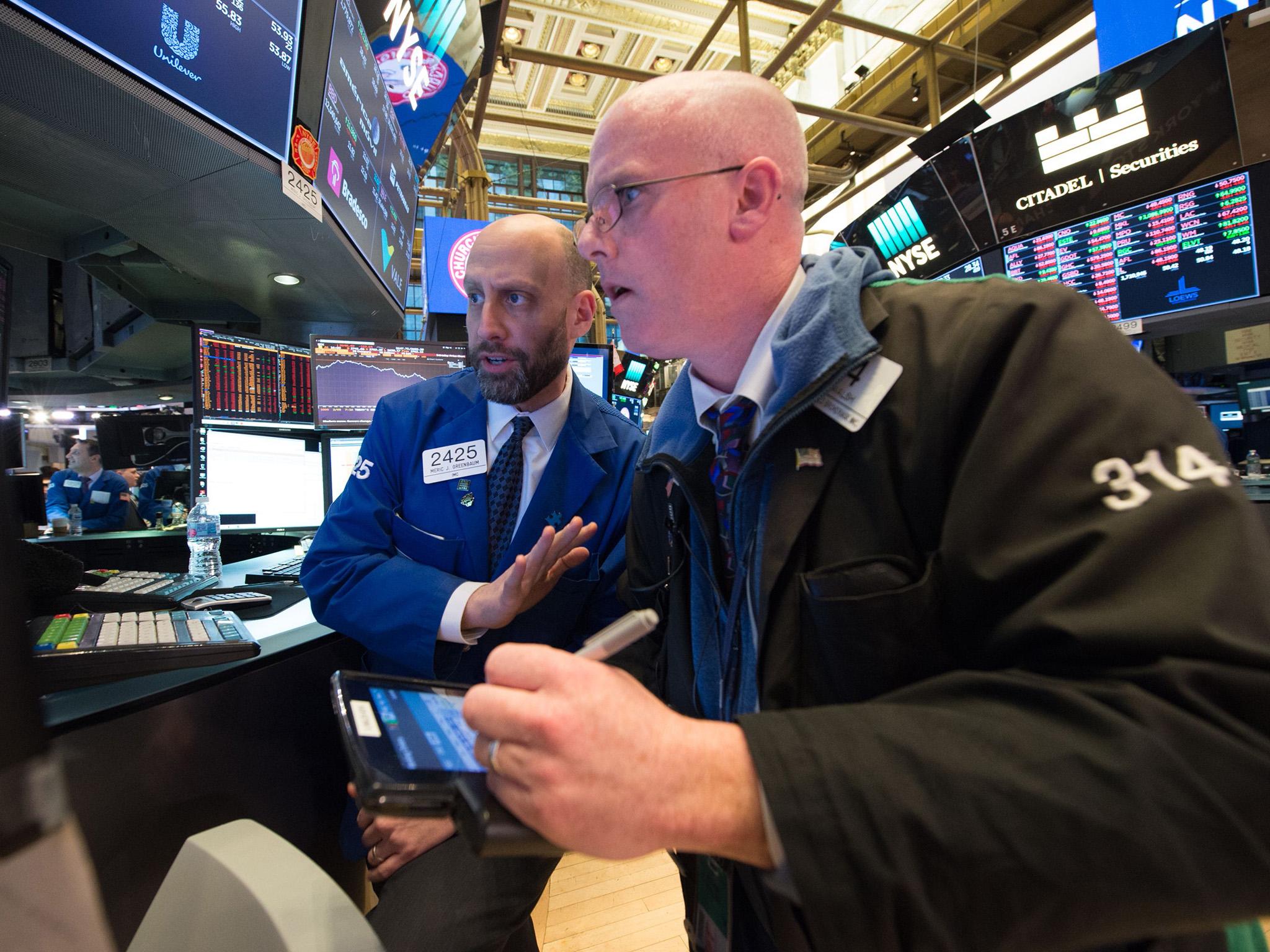Share price latest: How strategists and analysts are reacting to plunge in global equities
FTSE 100 tumbled well over 3 per cent shortly after the market open before recovering slightly

Your support helps us to tell the story
From reproductive rights to climate change to Big Tech, The Independent is on the ground when the story is developing. Whether it's investigating the financials of Elon Musk's pro-Trump PAC or producing our latest documentary, 'The A Word', which shines a light on the American women fighting for reproductive rights, we know how important it is to parse out the facts from the messaging.
At such a critical moment in US history, we need reporters on the ground. Your donation allows us to keep sending journalists to speak to both sides of the story.
The Independent is trusted by Americans across the entire political spectrum. And unlike many other quality news outlets, we choose not to lock Americans out of our reporting and analysis with paywalls. We believe quality journalism should be available to everyone, paid for by those who can afford it.
Your support makes all the difference.A dramatic sell-off in US stock markets spread across the world on Tuesday, triggered by a sharp rise in US bond yields after data late last week showed wages increasing at the fastest pace since 2009.
That in turn raised the prospect of higher inflation and, as a result, the possibility of higher interest rates.
But strategists and analysts don’t appear to be in panic mode just yet.
Here’s a look at how some of them reacted to the stock market turmoil.
Karen Ward, chief market strategist for the UK and Europe at JPMorgan Asset Management
“Overall we are not convinced that the recent moves represent a major change of economic or market direction. Instead it is a normal shake-out that represents some portfolio readjustment and profit-taking after a peculiarly strong start to the year.
“Some market volatility is actually quite normal; since 1980, the average intra-year decline for the S&P 500 has been 13.8 per cent whilst annual returns were positive in 29 of those 38 calendar years.
“Unless you believe inflation is really set to return in a meaningful fashion then you should be confident that central banks will ease off the accelerator but stay away from the brake. In which case, the outlook for risk assets remains positive.”
Hussein Sayed, chief market strategist at FXTM
“We have been anticipating a correction for a long time now, but when markets become over-confident, corrections also become steeper. It’s hard to tell how far markets may decline, but given that economic fundamentals remain strong, I think investors will start buying the dips sooner than later.”
Neil Wilson, senior market analyst at ETX Capital
“We are not there yet but the chances of this sell-off turning into full blown 'bear market' [a 20 percent drop from a recent market high in major stock indexes] have increased dramatically. If investors look at underlying earnings growth and the fundamentals of the global economy, there is reason for optimism. However once this kind of stampede starts it’s hard to stop.”
Holger Schmieding and Kallum Pickering, economists at Berenberg
“Markets have enjoyed a sweet spot in the past year or so. Strengthening economic data that did not quite prompt central banks into putting on the brakes encouraged an equities rally while keeping sovereign bond yields lower than one would normally expect given the market’s expectation for GDP growth and inflation.
“The rise in bond yields reflects a return to normal for economic growth and inflation. And the softer equity markets, which for now reflects no more than a correction of the little excess on the upside in recent months, need not change the economic or central banking calculus much.”
James Bateman, chief investment officer for multi-asset at Fidelity International
"Let’s be clear – in the long span of financial history, this is not news. Yet in a world where the concept of a “correction” almost feels alien and where equities felt like an unstoppable one-way bet for a while, the normality of a setback can feel more painful.”
Naeem Aslam, chief market analyst at ThinkMarkets
“The sell-off in the market is nothing more than just long overdue market correction. As there is no fundamental situation which has made matters worse. The earnings season has told us one story that corporate profits are strong and the consumer confidence shows that investors are comfortable with their spending.”
Chris Beckett, head of equity research at Quilter Cheviot
“Fundamentals for equity markets remain strong, the global economy is growing and corporate profits are rising. In this context the fall we are seeing is mainly a valuation correction that is a buying opportunity for investors prepared to take a slightly longer term view on the prospects for quality companies. We are advising investors to keep their cool, focusing on advantaged companies trading on sensible valuations.”
Join our commenting forum
Join thought-provoking conversations, follow other Independent readers and see their replies
Comments